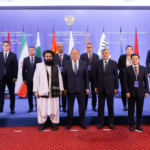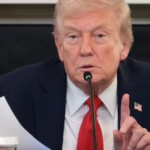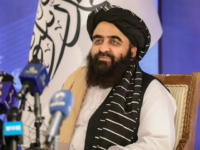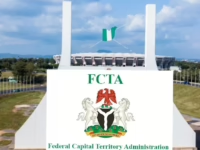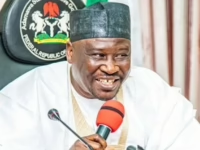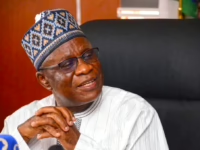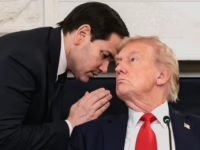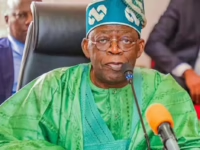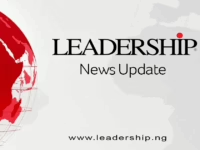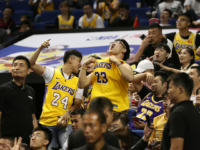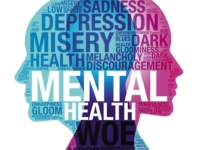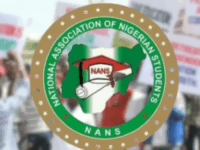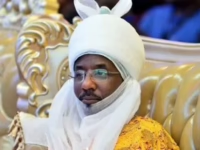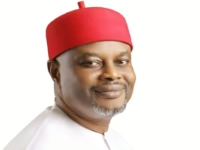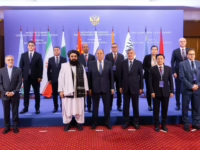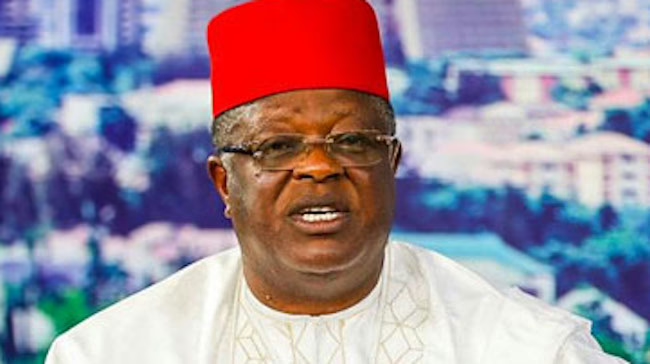For anyone seeking a textbook example of how a national TV interview can unravel into a spectacle of ministerial arrogance, David Ụmahi, Nigeria’s Minister of Works, provides a striking case. His appearance on Rufai Oseni’s Arise TV program didn’t just involve answering questions-it erupted into a public display of indignation and defensiveness.
Oseni posed a straightforward question: “How much?”-a simple demand for transparency about the cost per kilometer of the contentious Coastal Highway project. In a nation plagued by inflated contracts and disappearing funds, such a query is not only reasonable but necessary. Any official confident in their management should welcome the opportunity to provide clear, data-driven answers.
Yet, in the Nigerian political context, Ụmahi perceived this inquiry as an affront. Instead of addressing the question with openness, he responded with condescension, hostility, and a defensive posture. What should have been a moment to demonstrate accountability turned into a reflection of the arrogance and fragility that often characterize Nigeria’s political elite. He dismissed the question with scorn, wagging his finger and adopting the tone of a ruler affronted by a subject’s insolence. This reaction typifies a political culture where transparency is shunned and accountability is treated as an alien concept.
Ụmahi’s conduct epitomizes the Nigerian ruling class’s grandiose self-image-figures draped in traditional attire who cannot tolerate the simple act of citizens questioning how their taxes are spent. For them, governance is a privilege bestowed by birthright, not a responsibility to the people. Any challenge to their authority is met with disdain, reinforcing a paradox where those entrusted to serve see scrutiny as disrespect.
Thus, the exchange between Ụmahi and Oseni was more than a heated TV moment; it was a revealing glimpse into the entrenched culture of impunity within Nigeria’s public institutions. Many officials view interrogation by journalists or citizens as a breach of their elevated status, treating governance as a personal entitlement rather than a public service.
There is, however, a deeper layer to this drama-one that intertwines ethnic identity and psychological strain. Ụmahi’s outburst may also reflect the complex pressures faced by Igbo politicians navigating Nigeria’s federal system. The ongoing detention of Nnamdi Kanu, leader of the Indigenous People of Biafra (IPOB), contrasts sharply with the more lenient treatment of other regional activists, highlighting a double standard that resonates deeply in the South-East.
RELATED: Senate urges Nigerian government to establish permanent military base in Kwara
While Nnamdi Kanu languishes in legal uncertainty in Abuja, other figures like Sunday Igboho have managed to leave the country and return with relative ease, enjoying freedoms denied to Kanu. This disparity fuels a sense of injustice and alienation among Igbo minister-over-alleged-sack-of-varsities-vcs/” title=”Reps invite education … over alleged sack of varsities’ VCs”>leaders and their communities.
Adding to the irony, Geoffrey Uche Nnaji, another Igbo minister overseeing Innovation, Science, and Technology, recently resigned amid allegations of certificate forgery-submitting his resignation directly to the highest authority. Such incidents underscore the contradictions and challenges within the political landscape.
Perhaps Ụmahi’s televised meltdown was not merely arrogance but the eruption of pent-up frustration-caught between witnessing the suffering of his ethnic peers and grappling with the hypocrisy of the system he serves. This internal conflict might explain his loss of composure, though it does not excuse it.
If Ụmahi’s allegiance still lay with his ethnic community, his anger might have been channeled as a justified protest against systemic injustices. Instead, he appears to have embraced a role that prioritizes political convenience over communal solidarity, trading ethnic loyalty for alignment with the status quo.
Nonetheless, empathy for his predicament should not overshadow the fact that his conduct was a national embarrassment. His inability to maintain professionalism and provide transparent answers only reinforces the perception that many Nigerian leaders confuse public office with personal dominion. Despite his engineering background, Ụmahi failed to demonstrate the fundamental virtue of humility, opting instead to bulldoze through the interview and alienate the public.
David Ụmahi’s actions do not warrant leniency; rather, they earn him a place among those officials who treat accountability as an insult. He embodies a political class that expects applause instead of scrutiny, and his outburst serves as a stark reminder of the disconnect between Nigeria’s leaders and the citizens they are meant to serve.
Ultimately, Rufai Oseni’s interview did more than challenge a minister-it exposed a prevailing mindset. Ụmahi’s bluster echoed a chorus of entitlement that drowns out the essential call for responsibility. Nigeria desperately needs leaders who recognize that public service demands humility and transparency, not ego and defensiveness. Unfortunately, the Works Minister’s display confirmed that the path to such leadership remains distant.
In conclusion, Ụmahi’s outburst was not just a moment of poor temper but a revealing symptom of fragile egos cloaked in authority. Power in Nigeria often masquerades as a costume, concealing insecurity beneath bravado. When a public official cannot calmly answer a simple question about project costs, it signals a failure of leadership. His behavior was more than discourteous-it was a testament to how some leaders perceive themselves as monarchs rather than public servants. In a functional democracy, such an episode might end a career; in Nigeria, it likely results in mere lip service and continued impunity. This reality encapsulates why progress remains elusive.
By: Dr. Vitus Ozoke, lawyer, human rights advocate, and commentator based in the United States.


